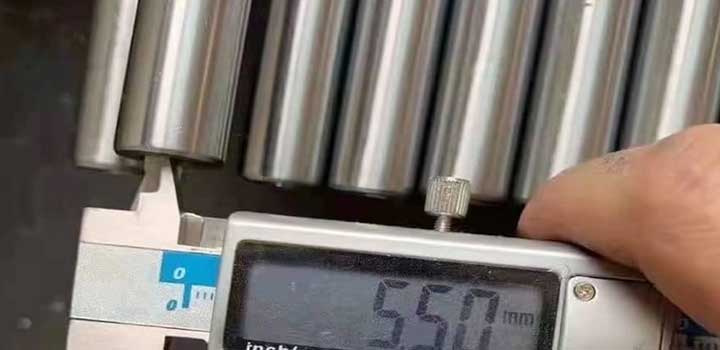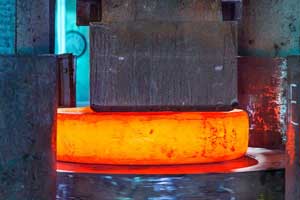
STKM13C is a carbon steel known for its strength and adaptability across various applications. It offers excellent weldability, making it ideal for manufacturing processes like welding, bending, and forming without compromising structural integrity. This reliability makes it a popular choice in industries such as automotive, construction, and machinery.
Table of contents
- STKM13C Chemical composition
- CNS STKM13C Mechanical Properties
- STKM13C Steel Physical properties
- STKM13C equivalent material
- Heat Treatment of JIS G3445 STKM13C
- Creep strain limit of CNS STKM13C
- Operating Temperature of STKM13C Material
- STKM13C Steel Grade Hardness
- JIS STKM13C Application
- Range of products of JIS G3445 STKM13C
- JIS STKM13C Manufacturing process
- Delivery condition of JIS G3445 Grade STKM13C
- Tolerance on Outside Diameter of STKM 13C material
- Tolerance on Thickness of CNS STKM13C
- STKM 13C Steel process performance
- Features of JIS STKM13C
STKM13C Chemical composition
JIS G3445 Grade STKM13C Tubes are easy to form and shape, Check Mechanical Properties
STKM13C tubes are highly formable and can be easily bent, welded, or shaped into complex structures without losing their strength. This flexibility reduces labor costs and allows for precise fabrication, which is crucial for engineering projects that require accuracy and durability.
In terms of mechanical properties, the tensile strength of STKM13C is at least 539 MPa, indicating its ability to withstand pulling forces without breaking. This makes it ideal for applications where structural integrity is essential.
The yield strength of this material is around 488 MPa, meaning it can handle significant loads without deforming. This property is especially valuable in the automotive and construction industries, where materials must endure heavy stress and maintain stability over time.
CNS STKM13C Mechanical Properties
Tensile Stress
Rm (MPa) |
Yield Stress
Rp0.2 (MPa) |
Elongation
A (%) |
Impact
KV/Ku (J) |
| 539 (≥) |
488 (≥) |
21 |
22 |
STKM13C Steel Physical properties
Temperature
(°C) |
Modulus of elasticity
(GPa) |
Thermal conductivity
(W/m·°C) |
Specific thermal capacity
(J/kg·°C) |
| 364 |
979 |
31.3 |
142 |
STKM13C equivalent material
- GB/T 8713 GB/T 3639 20#
- ASTM A519 Grade 1020
- EN 10305-1 E355+SR
- ISO 683-1 C20E4
- DIN 2391 ST52 BK+S
CNS STKM13C used for machinery and automobiles, Refer Heat Treatment
Due to its chemical composition, STKM13C is widely used in machinery and automotive components. In machinery, it provides structural support and durability under heavy loads. In vehicles, its resistance to corrosion and high temperatures ensures long-lasting performance and safety.
Heat Treatment of JIS G3445 STKM13C
| Heat Treatment |
1491°C – 1554°C |
Creep strain limit of CNS STKM13C
Creep strain limit (10000h)
(Rp1,0)N/mm2 |
399 |
STKM13C Steel contains up to 0.25% carbon, View Operating Temperature
With a carbon content of up to 0.25%, STKM13C offers a good balance of strength and ductility. It enhances the material’s hardness and resistance to wear, making it suitable for high-pressure environments.
Operating Temperature of STKM13C Material
| Operating Temperature |
743 °C |
STKM13C Steel Grade Hardness
JIS STKM13C Application
- Furniture
- Machinery
- Bicycles
- Automobiles
- Appliances
Refer JIS G3445 STKM13C material product range
STKM13C is available in various forms, making it suitable for a wide range of industrial and manufacturing applications. Its versatility ensures it can be used effectively in different projects, from simple components to complex structures.
Range of products of JIS G3445 STKM13C
| Products |
Dimensions |
| Plates/Sheets |
0.08-200mm(T)*W*L |
| Steel Bar |
8-1200mm*L |
| Strip / Coil |
0.03-16.0x1200mm |
| Seamless / Welded Pipes |
OD:6-219mm x WT:0.5-20.0mm |
View JIS G3445 Grade STKM13C Manufacturing process
STKM13C Manufacturing process
Forging is typically done at temperatures between 2012°F and 2192°F, allowing the material to be molded and shaped under pressure. Proper temperature control is essential to prevent damage during the process.
Hot rolling involves heating the material to between 2000°F and 2400°F, making it malleable before shaping it through rollers to achieve the desired dimensions.
Cold rolling increases strength and hardness while maintaining a smooth surface finish.
Casting involves melting the material at temperatures ranging from 2597°F to 2804°F, then pouring it into molds to create the final shape.
JIS STKM13C Manufacturing process
- Forging
- Hot rolling
- Cold rolling
- Cast
- Cold-Rolled
- Hot-Rolled
- Hot extrusion
Delivery condition of JIS G3445 Grade STKM13C
- Annealed
- Solution and Aging
- Quenched and Tempered
- Acid Washed
- Shot Blasting
- Rough Turning
Tolerance on Outside Diameter of STKM 13C material
| Div |
Tolerances on the OD |
| No. 1 |
Under 50mm ±0.5mm |
| 50mm or over ±1% |
| No. 2 |
Under 50mm ±0.25mm |
| 50mm or over ±0.5% |
Tolerance on Thickness of CNS STKM13C
| Size |
Tolerance |
| Under 4mm |
+0.6mm to -0.5mm |
| 4mm or over |
-12.50% to 15% |
STKM 13C Steel process performance
| Steel Grade |
Machinability |
Weldability |
Hardenability |
Cold Formability |
| STKM 13C |
Good |
Excellent |
Low |
Good |
Features of JIS STKM13C
- High dimensional accuracy
- Excellent surface finish
- Good ductility
- Versatile and adaptable
Food Industry Heat Transfer Fluid
Heat Transfer Fluid Therminol,thermic oil,dowcal n,therminol 55 heat transfer fluid
Heat Transfer Fluids , https://www.armcoltherm.com


